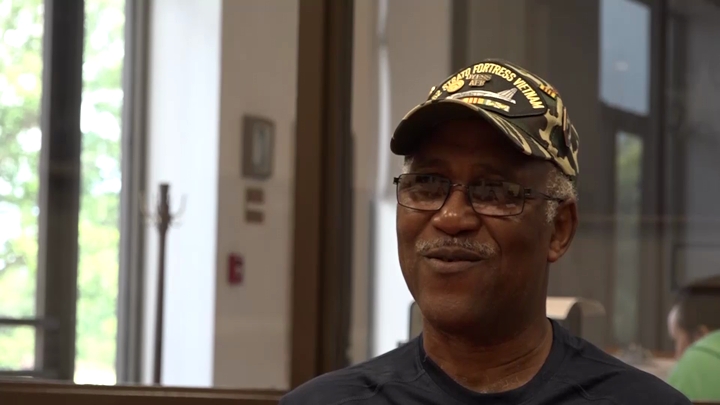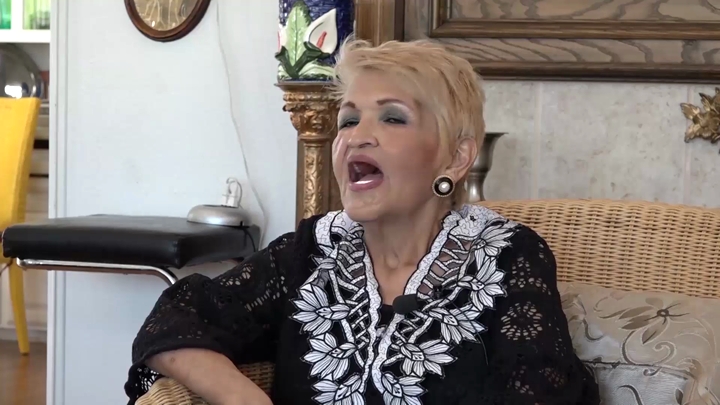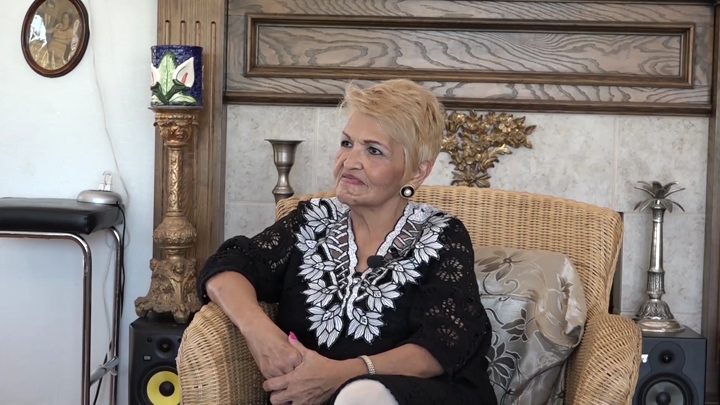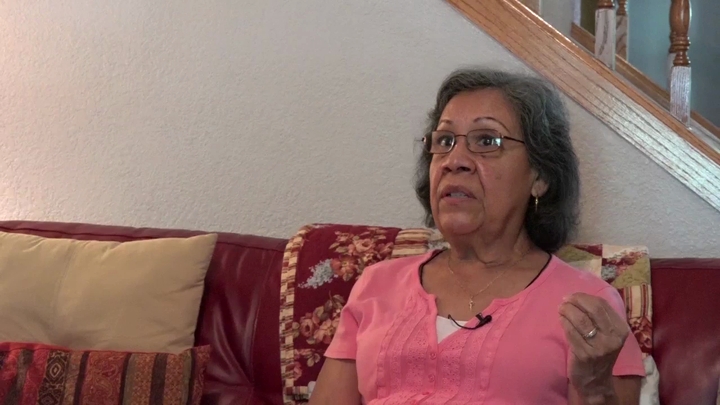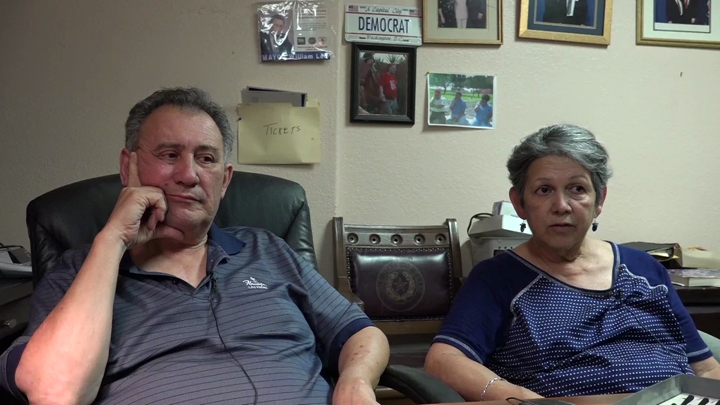Montejano / Experiences with Private School Education
sign up or sign in to add/edit transcript
Arionus: Can you tell me a little about the schools you went to? Montejano: My mother would not send us to the Edgewood Schools because they were very poor. My mother was high on education probably because she did not have access to an education. My father was going to night school. He worked full time. You know, and went to school at night. You want to talk about quality time- at that time there was no such thing. You did not hear about those things. But, that was the quality time between 3 and 5, you know, two hours when my father came home from work and getting ready to go to school. He went to St. Mary’s. The law school was downtown in the basement of St. Mary’s. I remember because my mom use to drop him off and we would go pick him up at night. And I remember because it was in the basement, and he used to come up from the basement. I was a kid. I was a little kid. Schools that we went to, and I think this goes back to again my mom. She converted to the Catholic church when she married my dad. And they had to sign contracts back then that they were going to raise their kids Catholic, blah, blah, blah. My mom took that to mean that you are going to educate them as Catholics. So she sent us to private school. We went to Christ the King. That was on Perez Street, also on the west side with Accordion Mary Sisters Arionus: Are these Sister’s predominantly Anglo? Montejano: They were predominantly Mexicanas. The way they came to San Antonio, they were fleeing the Revolution. Yes. Their mother house is in Chicago I believe, and they have a big convent congregation her in San Antonio. At that time they had the school there on Perez Street. That’s where David, myself, Johnny- all of us went there. And even my niece and nephew went there, and then they shut the school down. Obviously, because of economic reasons. Yeah, I went there for – do you really want to know this [laugh]- I went to kindergarten there, and I was kicked out of kindergarten because I did not have the social skills, supposedly, to be in kindergarten. My mother took me out. What it was is they use to separate the boys and the girls, and I grew up with boys. My cousins- they are all boys. They neighborhood I grew up in were all predominately boys. My brother’s friends came over. They were my friends- they are still my friends. So, I did not know about not playing with boys, or that I “played like a boy,” you know. So, I was kind of aggressive and rough, and tough. The nuns didn’t like that much, and so My mom took me out. I think I was there for half a year. I did not go back until I was five or six- until I went to the first grade. And then my brother was there in kindergarten. They use to bring him across the street from kindergarten to first grade because he would cry. Arionus: What was- do you remember how the education was? Maybe you can compare it to your friends that went to public school? Montejano: Oh, no. The education, I think we were pretty advanced. One of the things that I really resented was that they wanted us to speak English. These were nuns that could barely speak English themselves. And I’ll tell you because -Oh, gosh. I hate to sound like a rat, you know, because nuns were pretty- they were nuns- they were angry. They were angry, too, you know. I am not sure- what they were angry at other than they had to flee their home. But, they were so intimidated by supposedly teaching us English, you know, that they would not allow us to speak Spanish. They would charge us, that’s how they would punish us, for every owrd we spoke in Spanish. Which, you know, to us was “okay, we don’t have the money, but you can chalk it up on the bill, you know. Put it on my tab.” Because we did not have the money to pay you. But that’s what they did. And they set up a little court system. And they had spies that said “she spoke in Spanish- and she did this and he did that.” Arionus: The other kids? Montejano: Yeah! And so, once a week, every Friday, I’ll never forget. Right before school would let out we would go to the mock court and they would tell us all of our infractions. What we did wrong, and all this kind of stuff. Of course, I was always in court. Guess who the judge was? My brother, David. So this was another tactic brother against sister. (I cannot understand the question at 6:17) Montejano: Not really, he would go home and tell my mother. “They are embarrassing me.I am the oldest.” He was the oldest, you know, he was in charge of us. Making sure we stayed in line, stuff like that. It wasn’t working, obviously. But we would go home and he’d tell mom – du da duh. But, you know, my mom, she would tell us, “You better behave. La la la, la la la.” But at the same time she would tell my brother, you are brother and sisters, you are not going against each other. BLAH. PERIOD.


